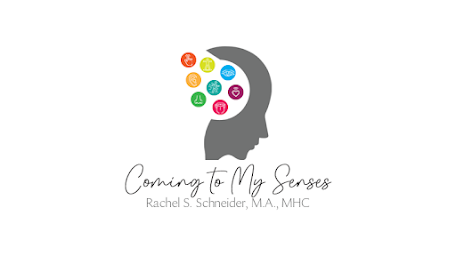OT, Session 2
It's been four weeks since I was officially diagnosed, and today marked my second occupational therapy session, which, much like the first, was a symphony of new terminology, concepts, and tools. Before even really settling in, my OT placed a pair of massive headphones on my ears, and turned on what can only be described as an iPod on steroids.
It was a listening program, based on the techniques of Dr. Alfred Tomatis, an otolaryngologist (a physician of the head, nose, and throat) whose work with opera singers lead to the development of the "Electronic Ear." This device used earphones and sound filters to enhance and sensitize the singers to the frequencies they were missing, and forms the basis for the listening programs used today. As far as I understand, the programs help with sensory gaiting, or the automatic process by which the brain adjusts its response to stimuli. When one stimulus is presented, there is a response. But when it is followed by a second stimulus soon after, the response to the second stimulus is blunted. This is an adaptive mechanism to prevent overstimulation, and it helps the brain focus on a stimulus among a host of other distractors - something that I have trouble doing.
The sound coming through the headphones was peaceful, like chanting monks and classical music, but it sounded different, almost as if tiny monks were actually sitting in my ears singing to me. The music is conveyed through bone conduction, as are most lower-frequency sounds that we hear (and the sounds we hear of our own voices). According to the listening program's website, by boosting both high and low frequencies as well as volume in this manner, the muscles in the middle ear tighten and relax, which strengthen them over time, and lend to more focused hearing. Just before we shut off my first session with the program, I noticed my ears were twitching, especially on my right side - a strange sensation I cannot say I've ever experienced. When I reported this to my OT, she was startled that I was so sensitive, and marveled that I noticed my right ear twitching more than my left (it seems more of this type of sound is filtered through the right side). We are in the process of working out the details, but if all goes as planned, I will be required to listen to an hour of this music per day for 80 days. Seemingly a worthwhile undertaking.
We also discussed my propensity to smash myself into the corners of just about everything, and my lack of ability to remember when and how I got bruised. Apparently this deals with proprioception, the sense of the position, location, orientation, and movement of the body - and its parts - in space. According to my OT, it seems my brain is not getting enough feedback from my body (hence the positive effects of pushing and jumping during the brushing technique), and the receptors between my joints are not completely conveying where everything's connected. Thankfully, the best medicine for this symptom is the gym, something I've taken up since my yoga injury in March, and have become even more dedicated to lately since my diagnosis. She called for extra heavy pressure on my lower body (anyone want to lend me a trampoline?) and balance practice via an old yoga favorite, the tree pose.
I have also been instructed to download some Mozart (also based on Dr. Tomatis' work, suggesting that listening to Mozart's music may induce a short-term improvement on the performance of certain kinds of mental tasks), and listen to a CD of nature sounds that helps the brain learn to process where sounds are derived, spatially.
I've learned so much in four weeks, and am already feeling more focused and less anxious, so I can only imagine what the next month holds in store.



Good news for you, I have Mozart on my computer (because really, what don't I have besides music you really like). I also have a meditation CD that might qualify as a nature CD.
ReplyDeleteHooray for learning things!
I downloaded a whole CD of it tonight! Should've thought to check with you first, silly me!
ReplyDeleteJust amazing how the various senses play a role in your overall good health. It's wonderful that they have developed so many tools that have specific applications and goals. Very exciting!
ReplyDelete